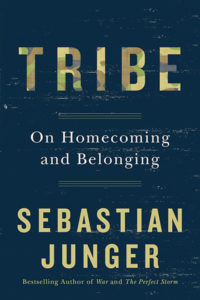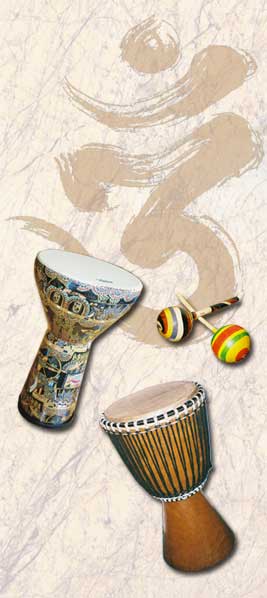Archive for June, 2016
May I Have This Dance?
Wednesday, June 15th, 2016
“You didn’t come all this way to sit on a couch, did you?” That was my pick up line at a dance in 1994. It was awkward and funny and eventually I danced with the woman who became my spouse.
It was almost 22 years ago that I went to a dance by myself to be part of the L.G.B.T. community, to meet new friends, and to dance. I remember feeling scared to go. It took every ounce of courage to get on the subway from the Bronx and travel to Webster Hall in Manhattan for a big dancing night. I didn’t know a soul there. I walked into the room wide-eyed and curious and anxious. I was searching for something I didn’t even know I was seeking – my inner freedom. The freedom to be myself, fully. The freedom to be with a woman. The freedom to love – all of me. The freedom to release worry of what “others” might think.
That night in Webster Hall gave me more than a life partner. It gave me my life back. A life that was no longer ashamed to be who I am in the world. A life where I was no longer inhibited by internal or external homophobia. A life where I was no longer inhibited by my body image.
Dance halls and clubs are where so many in the L.G.B.T. community gather for a sense of belonging, connection, and hope. Dance floors are places of refuge. In Buddhist terms, clubs and dance floors are often our sangha. It’s our community. It’s a place we can express ourselves, release inhibition, and be completely free – arms in the air (like we just don’t care).
The tragedy in Orlando was an attack on more than the L.G.B.T. community. It was an attack on expression and freedom. It opened up old shame wounds of our society about integration, diversity, sexuality, and our beliefs on how we define love. In many ways, it was an attack on love itself.
The mass shooting could have targeted any community and many have experienced this trauma before in other places and with other victims: movie theaters, schools, politicians, children, churches, and L.G.B.T. communities.
Our L.G.B.T. community has been vulnerable to hate, to slurs, to violence, to whispers, to looks, to shame, and more. Anyone who has ever come out knows these experiences deep in their cells. It’s the one where someone in our life feels disappointed, scared, angry and ashamed about who we are and who we love. At times, it triggers our own questioning of our identity and we begin to question — is this the life I want?
Then, on a random Saturday night, you ask someone to dance. And you dance and dance and dance.
And then you know, this sangha, this dance hall/club refuge is the very freedom that lives inside of you waiting to be expressed in the world.
Please remember – you are not alone. We are in this together.
Cry. Hug. Hold Hands. Sing. Be Seen. Be Heard. Love More. Dance. Keep Dancing.
Allow grief to surface. Reach out. And when you are ready, please keep dancing.
We Are Orlando.
Book Review: Tribe – On Homecoming and Belonging by Sebastian Junger
Thursday, June 9th, 2016
“In keeping with something called self-determination theory, which holds that human beings need three basic things in order to be content: they need to feel competent at what they do; they need to feel authentic in their lives; and they need to feel connected to others.” ― Sebastian Junger, Tribe: On Homecoming and Belonging
 In his new book, Tribe: On Homecoming and Belonging, Sebastian Junger suggests that we miss the fraternity that thousands of years of tribal life have programmed us for. Instead, Junger writes about how society has moved away from communal living. He gives examples of how we live at a time where a sense of entitlement has replaced a sense of village. Sebastian Junger shows us just how at odds the structure of modern society is with our tribal instincts, arguing that the difficulties many veterans face upon returning home from war do not stem entirely from the trauma they’ve suffered, but also from the individualist societies they must reintegrate into. Sebastian Junger, takes a critical look at post-traumatic stress disorder and the many challenges today’s returning veterans face.
In his new book, Tribe: On Homecoming and Belonging, Sebastian Junger suggests that we miss the fraternity that thousands of years of tribal life have programmed us for. Instead, Junger writes about how society has moved away from communal living. He gives examples of how we live at a time where a sense of entitlement has replaced a sense of village. Sebastian Junger shows us just how at odds the structure of modern society is with our tribal instincts, arguing that the difficulties many veterans face upon returning home from war do not stem entirely from the trauma they’ve suffered, but also from the individualist societies they must reintegrate into. Sebastian Junger, takes a critical look at post-traumatic stress disorder and the many challenges today’s returning veterans face.
Junger tackles the tough subjects of the rising rate of mental illness and PTSD that many in our society are experiencing. His book starts at the beginning with the Native Americans and their society that celebrated communal living and how we have moved away from the collective to the induvial. His book provides many stories of how our current way of living with selfishness and lack of connection has led to a disconnected society.
The most recent example of societal disconnect includes many of the combat veterans who come home only to find themselves missing the incredibly intimate bonds of platoon life. According to Junger, the loss of closeness that comes at the end of deployment may explain the high rates of post-traumatic stress disorder suffered by military veterans today. Tribe explores what we can learn from tribal societies about connection, belonging, loyalty, and the question for meaning.
Disclosure: I received a copy of this book from the publisher in exchange for an honest review.



